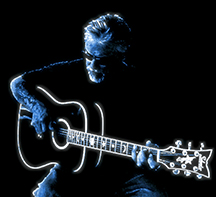Hymns From The Solar Temple
Dennis Dread
"But the bridge resounds no less under just you, and you do not have the colour of dead men. Why are you riding here on the road to Hel?"
~Gylfaginning
T he music of Lucifer Rising reverberates with all the pathos and raw emotive energy of an ageless archetype. Like the film itself, the symbols evoked in sound are at once timeless and yet strangely born of a very specific time and place, a frozen moment that has been sealed to us forever. Something emerges from the grooves of this vinyl collection that we can only hope to borrow for a short while and ride like a solar disk to places yet unknown. In the Old Norse tale concerning Thor's missing hammer, Loki borrows the goddess Freyja's cloak to make haste to the Land of Giants. In an altogether more somber Viking-age dirge involving mistletoe and funeral pyres, Hermod borrows Odin's eight-legged steed to ride into the underworld and request that Hel bid their beloved Shining God's return to the living. The borrowed vehicle is a recurring mythic theme throughout the world, and I am reminded of this archetype as I pull onto Interstate 5, in a van that clearly does not belong to me, heading south toward Interstate 84.
he music of Lucifer Rising reverberates with all the pathos and raw emotive energy of an ageless archetype. Like the film itself, the symbols evoked in sound are at once timeless and yet strangely born of a very specific time and place, a frozen moment that has been sealed to us forever. Something emerges from the grooves of this vinyl collection that we can only hope to borrow for a short while and ride like a solar disk to places yet unknown. In the Old Norse tale concerning Thor's missing hammer, Loki borrows the goddess Freyja's cloak to make haste to the Land of Giants. In an altogether more somber Viking-age dirge involving mistletoe and funeral pyres, Hermod borrows Odin's eight-legged steed to ride into the underworld and request that Hel bid their beloved Shining God's return to the living. The borrowed vehicle is a recurring mythic theme throughout the world, and I am reminded of this archetype as I pull onto Interstate 5, in a van that clearly does not belong to me, heading south toward Interstate 84.

Barreling east for hours, rain spatters the windshield as I reflect on the relative value of human life. My work among the homeless has occasionally put me in close proximity with child molesters, murderers, rapists, and thieves. I meet these people under bridges and in doorways, at public meals and shelter lines. It seems strange to me that these frequent repeat offenders can inflict such suffering, casually relate their crimes, and still walk the streets and enjoy the ripple of wind across the Willamette River. Music erupts from the speakers in jagged bursts and I am reminded of Kurt Struebing, of the notorious heavy metal band NME, who murdered his own adoptive mother with a hatchet and scissors in 1986. He was 20 years old and was sentenced to 12 years in prison, but was released early after serving only 8. He butchered his mother just a few hours away from where I am now sitting, under what prosecutors described as a drug-induced psychosis, and was performing again in clubs less than 10 years later. In 1969 Bobby BeauSoleil killed a man. He was 21 years old. BeauSoleil has been in prison longer than I have been alive on this earth. Recently he was denied parole for the nineteenth time since he became eligible for parole in 1976. 1 + 1 = 0. Somehow the mathematics of justice does not always add up.
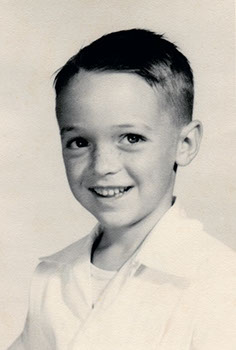 Robert Kenneth Beausoleil was born under the sign of the scorpion on November 6th, 1947 in Santa Barbara, California. Roughly translated, Beausoleil means "Beautiful Sun" and Bobby has seized this meaning in more recent years by capitalizing the 's' for emphasis. The name itself betrays certain artistic and spiritual coordinates. It has also inherited a stinging irony. Restless seemingly since birth, it did not take BeauSoleil long to yearn for stimulation beyond the tract homes and surfboards of 1950's suburbia. At the age of 16, he packed his guitar and headed south for Los Angeles where he quickly became entrenched in the colorful Hollywood music scene. BeauSoleil's popularity with the ladies soon became the stuff of legend and earned him the street name 'Cupid'. He played guitar for several garage acts, including a brief stint with Arthur Lee and The Grass Roots.
Robert Kenneth Beausoleil was born under the sign of the scorpion on November 6th, 1947 in Santa Barbara, California. Roughly translated, Beausoleil means "Beautiful Sun" and Bobby has seized this meaning in more recent years by capitalizing the 's' for emphasis. The name itself betrays certain artistic and spiritual coordinates. It has also inherited a stinging irony. Restless seemingly since birth, it did not take BeauSoleil long to yearn for stimulation beyond the tract homes and surfboards of 1950's suburbia. At the age of 16, he packed his guitar and headed south for Los Angeles where he quickly became entrenched in the colorful Hollywood music scene. BeauSoleil's popularity with the ladies soon became the stuff of legend and earned him the street name 'Cupid'. He played guitar for several garage acts, including a brief stint with Arthur Lee and The Grass Roots. 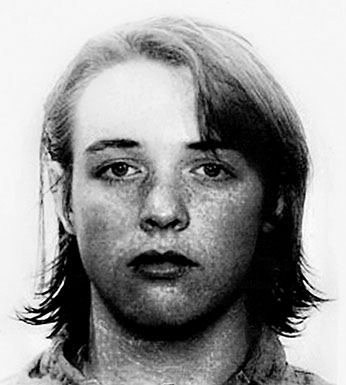 Still too young to play the adults-only circuit, BeauSoleil was soon let go. As would prove to be the case throughout his life, BeauSoleil's brief impression was lasting and Arthur Lee soon re-christened his band Love, reputedly a winking homage to bb 16 mugshotthe young runaway's romantic proclivities. Bandless but unbroken, BeauSoleil soon headed for higher ground and landed in Haight Ashbury just prior to his 18th birthday. Marching into the thriving psychedelic street revolution, BeauSoleil formed an art rock band, The Orkustra, and began gigging regularly at Be-In events throughout the city. It was during this time, just months before the onset of the Summer of Love, that underground filmmaker Kenneth Anger discovered BeauSoleil during a psychedelic arts festival called The Invisible Circus. Anger immediately cast the handsome musician as the lead man and fallen angel archetype in his latest celluloid ritual, Lucifer Rising. With typical melodramatic pomp, Anger approached BeauSoleil in a parking lot after the festival, declaring, "You are Lucifer!" BeauSoleil agreed to play the part under the condition that he would also compose the film's soundtrack.
Still too young to play the adults-only circuit, BeauSoleil was soon let go. As would prove to be the case throughout his life, BeauSoleil's brief impression was lasting and Arthur Lee soon re-christened his band Love, reputedly a winking homage to bb 16 mugshotthe young runaway's romantic proclivities. Bandless but unbroken, BeauSoleil soon headed for higher ground and landed in Haight Ashbury just prior to his 18th birthday. Marching into the thriving psychedelic street revolution, BeauSoleil formed an art rock band, The Orkustra, and began gigging regularly at Be-In events throughout the city. It was during this time, just months before the onset of the Summer of Love, that underground filmmaker Kenneth Anger discovered BeauSoleil during a psychedelic arts festival called The Invisible Circus. Anger immediately cast the handsome musician as the lead man and fallen angel archetype in his latest celluloid ritual, Lucifer Rising. With typical melodramatic pomp, Anger approached BeauSoleil in a parking lot after the festival, declaring, "You are Lucifer!" BeauSoleil agreed to play the part under the condition that he would also compose the film's soundtrack.
BeauSoleil formed a new band called the Magick Powerhouse of OZ expressly for the Lucifer Rising score. It would be another short-lived project. Soon he and Anger had a legendary falling out and parted ways with Anger spitting death curses at the young musician's heels. BeauSoleil returned to Hollywood in his Studecabin, picking up occasional gigs as a session guitarist with a penchant for soaring free-jazz solos and distortion. But the scene had changed by degrees and perceptive “heads” felt the turning of the screw. A darkness was descending over the Aquarian Age. 21 years old and already disenchanted by society and the sold out counterculture movement, BeauSoleil recast himself as a freebooting barbarian searching for a freedom he thought best embodied by hell raising motorcycle outlaws. A series of tragically misbegotten choices arising out of these identifications brought him to prison for murder in 1969.
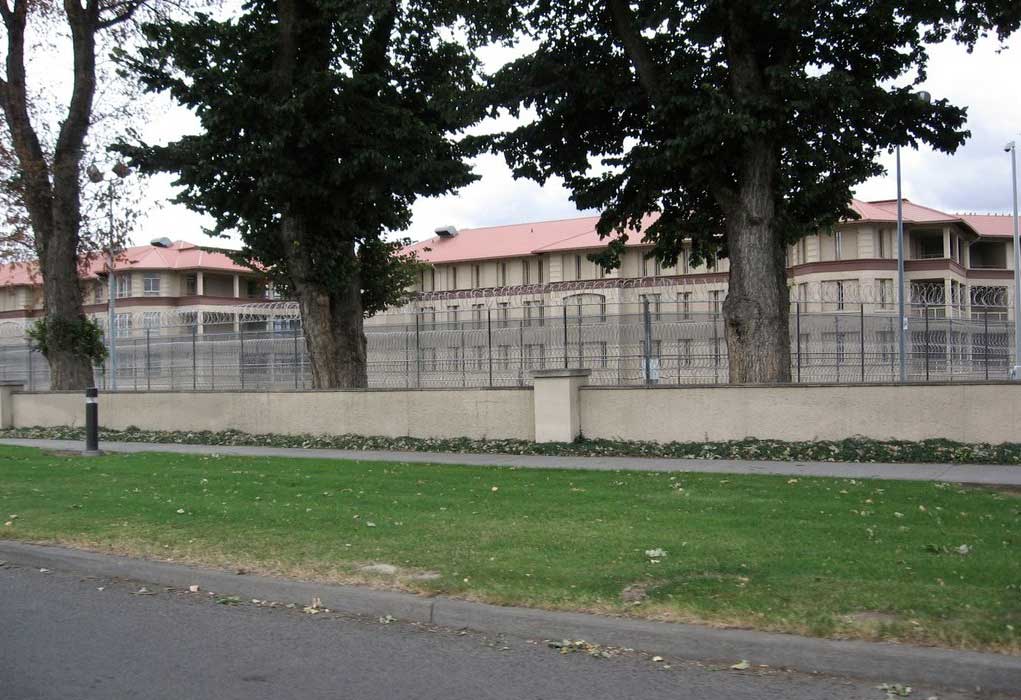
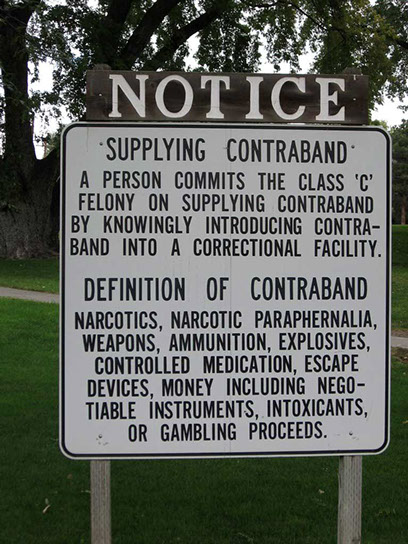 I arrive in Pendleton and pull off the road at the Eastern Oregon Correctional Institution. The parking lot is set back quite a distance from the main entrance and I walk slowly along the footpath, inhaling the cool wet wind and surveying the coils of razor wire surrounding the walls. This is a minimum-security prison but strict control is palpable with every step. As I enter the lobby there is an elderly woman with a walking stick of knotted wood, perhaps in her late 60's or early 70's, pleading with the robust desk clerk. Apparently the woman has left her identification in her car and the prison officials will not grant her entrance. "I'm a doctor! I've been coming to this prison to see the same client for 10 years!" The desk clerk shifts in her seat but remains calmly unmoved. I wait patiently while the elderly woman attempts to plead her case, the lines in her face becoming sharper. "I'm sorry, Dr. Pain," the clerk reiterates, "you will not be allowed entrance without your State issued ID." Dr. Pain is articulate and pissed and I suddenly find myself sympathizing despite the inconvenience of her argument. "I'm an old woman and my license is in my car all the way back at the parking lot. You know who I am!" Almost involuntarily, I step up beside her and quietly point out that visiting time is over in less than two hours. "If you can get a wheelchair, I'll push you out to your car." Dr. Pain turns suddenly, glancing me up and down in a quick gesture as she has probably done countless times throughout her career as a therapist for criminals and the mentally ill. She smiles. The clerk calls for a wheelchair and begins processing my entrance. She takes my ID and asks whom I'm here to visit. "How do you spell that?" I spell Bobby's last name slowly and she blinks away from the computer screen. "Oh. Him. I always wondered how you pronounce that name." I am handed a locker key and instructed to secure all of my personal belongings just as three large guards appear with a wheelchair and position it in front of the elderly doctor. As I step away from the desk toward the lockers I hear the clerk behind me say flatly, "I'm sorry, you can't go in." I turn out of sheer curiosity and see she is looking at me. "You're wearing blue jeans. You can't go in." I glance at the clock and then down towards my pants. My black shirt is buttoned to the neck and tucked into blue jeans. The cuffs are rolled at the bottom, revealing scuffed black combat boots. "I was told I couldn't wear blue jeans with a blue shirt. I'm wearing a black shirt." "I'm sorry," she repeats, "No blue jeans." I feel the blood rush to my face and my palms become sweaty. "I just drove 3 and a half hours from Portland to visit my friend. I have to go in!" I notice movement through the shatter-resistant window behind the clerk's station as a guard with thick arms becomes more acutely aware of my presence. The elderly woman leans towards me now and in a gentle voice, a voice I imagine has served her well in her profession, says, "I think I might have some extra pants in my car. If you'll push me to the parking lot I'll see what I can do." I look down at her slight, bent body. She is wearing organic cotton pedal pushers that end just below her knees and button across her soft paunchy belly. A rainforest pattern, earth tone giraffes graze against washed out green and purple palm trees. She must recognize the darkness that has spread across my face because she laughs and assures me that the pants in her car are not so exotic. I glance at the clock above her head. "Where are you parked?"
I arrive in Pendleton and pull off the road at the Eastern Oregon Correctional Institution. The parking lot is set back quite a distance from the main entrance and I walk slowly along the footpath, inhaling the cool wet wind and surveying the coils of razor wire surrounding the walls. This is a minimum-security prison but strict control is palpable with every step. As I enter the lobby there is an elderly woman with a walking stick of knotted wood, perhaps in her late 60's or early 70's, pleading with the robust desk clerk. Apparently the woman has left her identification in her car and the prison officials will not grant her entrance. "I'm a doctor! I've been coming to this prison to see the same client for 10 years!" The desk clerk shifts in her seat but remains calmly unmoved. I wait patiently while the elderly woman attempts to plead her case, the lines in her face becoming sharper. "I'm sorry, Dr. Pain," the clerk reiterates, "you will not be allowed entrance without your State issued ID." Dr. Pain is articulate and pissed and I suddenly find myself sympathizing despite the inconvenience of her argument. "I'm an old woman and my license is in my car all the way back at the parking lot. You know who I am!" Almost involuntarily, I step up beside her and quietly point out that visiting time is over in less than two hours. "If you can get a wheelchair, I'll push you out to your car." Dr. Pain turns suddenly, glancing me up and down in a quick gesture as she has probably done countless times throughout her career as a therapist for criminals and the mentally ill. She smiles. The clerk calls for a wheelchair and begins processing my entrance. She takes my ID and asks whom I'm here to visit. "How do you spell that?" I spell Bobby's last name slowly and she blinks away from the computer screen. "Oh. Him. I always wondered how you pronounce that name." I am handed a locker key and instructed to secure all of my personal belongings just as three large guards appear with a wheelchair and position it in front of the elderly doctor. As I step away from the desk toward the lockers I hear the clerk behind me say flatly, "I'm sorry, you can't go in." I turn out of sheer curiosity and see she is looking at me. "You're wearing blue jeans. You can't go in." I glance at the clock and then down towards my pants. My black shirt is buttoned to the neck and tucked into blue jeans. The cuffs are rolled at the bottom, revealing scuffed black combat boots. "I was told I couldn't wear blue jeans with a blue shirt. I'm wearing a black shirt." "I'm sorry," she repeats, "No blue jeans." I feel the blood rush to my face and my palms become sweaty. "I just drove 3 and a half hours from Portland to visit my friend. I have to go in!" I notice movement through the shatter-resistant window behind the clerk's station as a guard with thick arms becomes more acutely aware of my presence. The elderly woman leans towards me now and in a gentle voice, a voice I imagine has served her well in her profession, says, "I think I might have some extra pants in my car. If you'll push me to the parking lot I'll see what I can do." I look down at her slight, bent body. She is wearing organic cotton pedal pushers that end just below her knees and button across her soft paunchy belly. A rainforest pattern, earth tone giraffes graze against washed out green and purple palm trees. She must recognize the darkness that has spread across my face because she laughs and assures me that the pants in her car are not so exotic. I glance at the clock above her head. "Where are you parked?"
The pants are a faded mint green. They are cotton pedal pushers like the giraffe pants, ending just below my knees and exposing the entirety of my boots. In the restroom's full-length mirror I resemble an art school skinhead or, it is painfully obvious, a Manson Family Hippy Killer! The waist somehow fits nearly perfectly and this momentarily distracts me from the thought of entering a prison wearing women's pants. I step out of the restroom and greet Dr. Pain's beaming face. She is strangely more vibrant and sturdy than I remembered. The clerk smiles from behind her desk. They are flanked by three smiling guards in grey shirts and black slacks. These are not the mocking grins I had expected. They all seem genuinely pleased, almost triumphant, that I would be entering the visiting room after all. It was as if this small subversive gesture had somehow trumped the shatter-resistant lobby and its cruel walls. "Ok, I guess you're going in." The clerk gestures toward the metal detector. Most of my belongings are stashed away in the locker but, nonetheless, the alarm buzzes and I am instructed to walk back through. "Take off your glasses," Dr. Pain advises cautiously. She has already cleared the detector and is waiting for a guard to escort her to her client. But we are in this together now and she is completely invested in the outcome. I take off my glasses but the alarm still sounds. "Are those steel toe boots?" "No." "Well, you can't enter unless you can pass the metal detector." I throw my head back in frustration and the guard's eyes fall upon the Norse icon hanging from a leather cord close to my throat. It is a Swedish museum replica and I have worn it around my neck everyday for many years. There is an awkward moment while the young guard, obviously good-natured and reluctant to ask me to remove an object that appears to have some spiritual significance, consults his superior through the thick shatter-resistant window. The sergeant leans a balding head toward the glass, carefully avoiding any potential lawsuits by suggesting, "If it's a religious object, you can wear it into the visiting room, but you've gotta take it off to pass the metal detector." I glance at the clock again. Visiting hours are over in less than one hour. "I need scissors." The expected chaos and confusion ensues while several guards scatter to find a sharp object in a room that is purposefully void of any sharp objects. Snip. I place my pendant and cord into the locker and step through the metal detector. Finally I am walking down the first of several long cold corridors, the "hallways of always", toward the visiting room. Electric doors slam hard behind us and echo along the walls as we walk. I am wearing mint green pedal pushers. My chest feels suddenly naked and vulnerable without the weight of Thor's Hammer. I feel completely defenseless and suddenly very small and very insignificant. As we walk, the guard looks straight ahead attentively and says, "They don't look bad. If I hadn't seen you put them on, I wouldn't even know they're an old lady's pants."
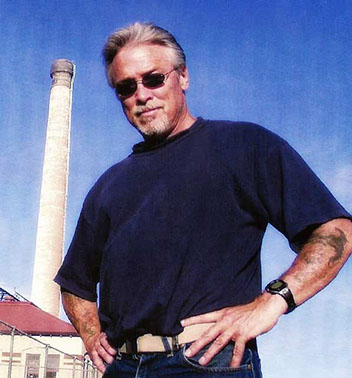 In the visiting room I sit on a hard plastic chair and await Bobby's arrival. After my ordeal in the lobby I am surprised by the comfort and relative warmth of the visiting room. Rows of inmates in blue denim shirts and pants are seated knee-to-knee with lovers and family. I had expected more thick glass and a phone, like in the movies, but the guests hold hands and lean their foreheads together like mating wolves. Beside me a scarcely pubescent girl with a thin frown and angry pierced eyebrows gazes into her father's face, tears and eyeliner streaming down her cheeks. It is painful to watch and even more painful to look away. Finally an elevator door opens and out steps Cupid. He blinks at the rows of bright orange chairs, adjusting to the harsh lighting, and I rise to my feet and yell, "BeauSoleil!" We greet each other with a massive handshake and drop to our seats. The next 45 minutes are a whirlwind of chatter. Strangely, I immediately feel as though I am catching up with an old friend. The fading female forms and Egyptian symbols on Bobby's arms look familiar somehow and he explains the process by which death row inmates create tattoo ink with burnt bible pages. He tells me about his war with the Aryan Brotherhood, how his jaw was smashed with a baseball bat in 1974 in a brawl that nearly cost him his life, and how he spent his week in the infirmary with his jaw wired shut tattooing LUCIFER across his chest with a guitar string, a bottle of ink, and a compact mirror. There is a radiance in Bobby's eyes as he loses himself in conversation, explaining the minutiae of his modest multi-media prison projects. 40 years of captivity have neither stripped his humanity nor broken his spirit.
In the visiting room I sit on a hard plastic chair and await Bobby's arrival. After my ordeal in the lobby I am surprised by the comfort and relative warmth of the visiting room. Rows of inmates in blue denim shirts and pants are seated knee-to-knee with lovers and family. I had expected more thick glass and a phone, like in the movies, but the guests hold hands and lean their foreheads together like mating wolves. Beside me a scarcely pubescent girl with a thin frown and angry pierced eyebrows gazes into her father's face, tears and eyeliner streaming down her cheeks. It is painful to watch and even more painful to look away. Finally an elevator door opens and out steps Cupid. He blinks at the rows of bright orange chairs, adjusting to the harsh lighting, and I rise to my feet and yell, "BeauSoleil!" We greet each other with a massive handshake and drop to our seats. The next 45 minutes are a whirlwind of chatter. Strangely, I immediately feel as though I am catching up with an old friend. The fading female forms and Egyptian symbols on Bobby's arms look familiar somehow and he explains the process by which death row inmates create tattoo ink with burnt bible pages. He tells me about his war with the Aryan Brotherhood, how his jaw was smashed with a baseball bat in 1974 in a brawl that nearly cost him his life, and how he spent his week in the infirmary with his jaw wired shut tattooing LUCIFER across his chest with a guitar string, a bottle of ink, and a compact mirror. There is a radiance in Bobby's eyes as he loses himself in conversation, explaining the minutiae of his modest multi-media prison projects. 40 years of captivity have neither stripped his humanity nor broken his spirit.  He shares his recently discovered drawing technique of covering illustration board with cooking oil and applying colored pencils with his fingers until it becomes a fluid tactile medium. Bobby's best drawings, like hiscompositions, are the residue of deeply sensual rites and whimsical imaginings of life beyond endless iron doors. Our conversation slides inevitably toward Manson and murder. I ask difficult questions and Bobby kindly answers. The man before me has tempered his Luciferian will with a soft spoken and thoughtful accountability for his past. As we talk, I am struck again with the tragedy that such a brief string of terrible decisions has so afflicted and nullified his otherwise peaceful and intensely creative years. In perhaps an unfair stroke of curiosity, I ask if he feels he has repaid his debt to society. Bobby shrugs and admits that this is not his to determine, "I killed a man." Soon, too soon, the guards interrupt our conversation. Bobby winces slightly when the guard yells out the five minute warning. Tears begin to flow around us and the other visitors clutch each other tightly. Bobby and I rise and give each other a brotherly hug, the pedal pushers riding high above my boot line for a moment. We both smile and laugh and agree to meet again for more mad storytelling. Soon we are lined against the wall and herded single-file back down the corridors toward the lobby. I turn one final time and Bobby is standing by his chair waving and smiling like an old uncle that hates to see you go...
He shares his recently discovered drawing technique of covering illustration board with cooking oil and applying colored pencils with his fingers until it becomes a fluid tactile medium. Bobby's best drawings, like hiscompositions, are the residue of deeply sensual rites and whimsical imaginings of life beyond endless iron doors. Our conversation slides inevitably toward Manson and murder. I ask difficult questions and Bobby kindly answers. The man before me has tempered his Luciferian will with a soft spoken and thoughtful accountability for his past. As we talk, I am struck again with the tragedy that such a brief string of terrible decisions has so afflicted and nullified his otherwise peaceful and intensely creative years. In perhaps an unfair stroke of curiosity, I ask if he feels he has repaid his debt to society. Bobby shrugs and admits that this is not his to determine, "I killed a man." Soon, too soon, the guards interrupt our conversation. Bobby winces slightly when the guard yells out the five minute warning. Tears begin to flow around us and the other visitors clutch each other tightly. Bobby and I rise and give each other a brotherly hug, the pedal pushers riding high above my boot line for a moment. We both smile and laugh and agree to meet again for more mad storytelling. Soon we are lined against the wall and herded single-file back down the corridors toward the lobby. I turn one final time and Bobby is standing by his chair waving and smiling like an old uncle that hates to see you go...
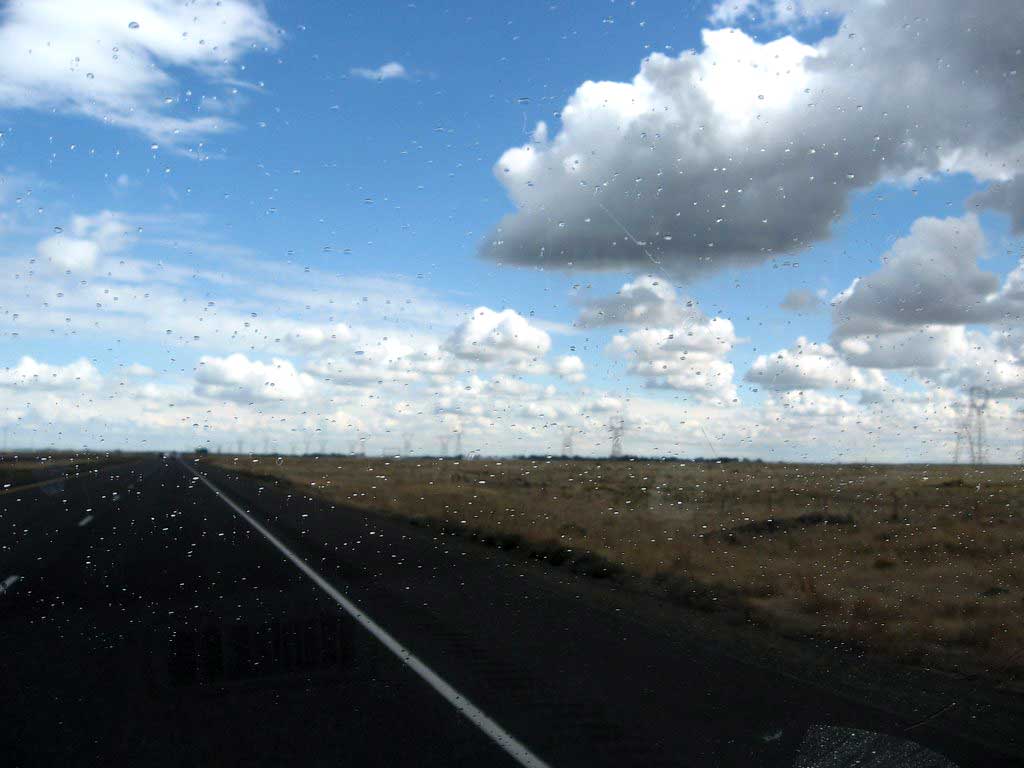
Back in the van my mind uncoils with the stretch of road spreading out in the rear-view mirror. It's a long way back to Portland and I drive west, smiling into the setting sun as I realize the mythic absurdity of my ordeal. The borrowed vehicle. The helpful elder. The gender-blending disguise. The loosing of armaments. The journey inward (downward) to a bleak underworld of fallen angels and lost souls. Revelation. The Return. I catch my reflection in the window as I switch lanes and glimpse an ancestral blaze in the red flecks of my beard. An unbroken thread of descent has brought me to this precise moment in time. I feel perfectly contained in this vessel of blemished skin and bones. The rain has passed and outside the summer evening sun slithers across the Columbia River like a trail of dark aortic blood. Make no mistake; The Lucifer Rising Suite is a ritual of liberation. Not just for the artist and composer, but for you and I as well.
Dennis Dread
Portland, Oregon
July 4, 2008
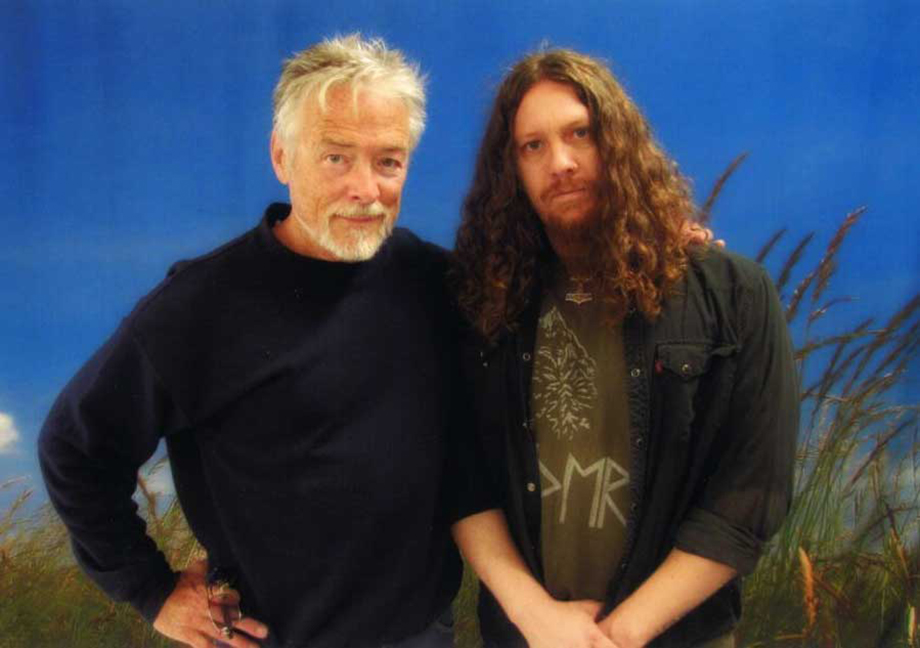
[Text & photos © 2008 Dennis Dread. May not be reproduced without permission. A slightly longer version of this essay appears as the liner notes to the Lucifer Rising Suite box set.]
© 2014 Bobby BeauSoleil and BHDesigns. All Rights Reserved. | Images are copyrighted to their respective owners. Go to our Privacy Policy.

